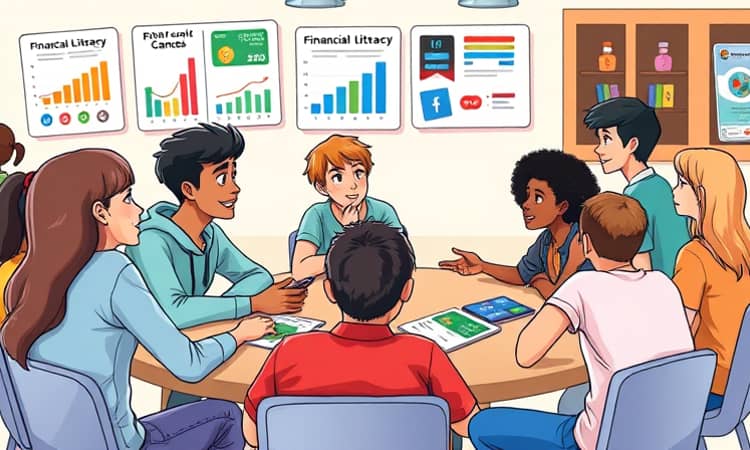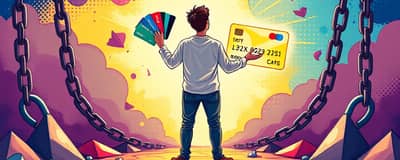Teaching teens about credit cards is crucial in today's financial landscape. With the growing reliance on digital payments and credit opportunities, understanding how to manage credit cards responsibly is essential. Teens are the next generation of consumers, and equipping them with knowledge will empower them to make informed decisions regarding their financial futures.
In this guide, we will discuss the key concepts to cover when teaching teens about credit cards, why this education is important, and practical steps to initiate these conversations. Providing teens with a solid foundation in credit management can help them avoid pitfalls and establish good financial habits early on.
Understanding Credit Cards
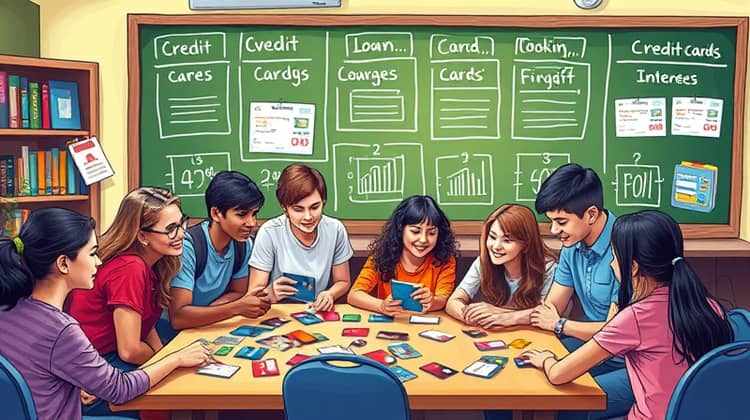
Credit cards have become a ubiquitous part of our financial system, allowing consumers to make purchases without immediately using cash. Understanding the mechanics of credit cards is the first step in teaching teens how to use them responsibly. A credit card essentially provides a loan to the cardholder that must be repaid with interest if not paid in full each month.
Moreover, credit cards offer various benefits, such as rewards programs, cash back, and the ability to build credit history. Teaching teens how to leverage these benefits while being aware of the risks associated with irresponsible usage is key to fostering financial literacy.
- What a credit card is and how it works
- Benefits of using credit cards for purchases
- Consequences of not paying bills on time
Why Teaching Teens About Credit Cards is Important
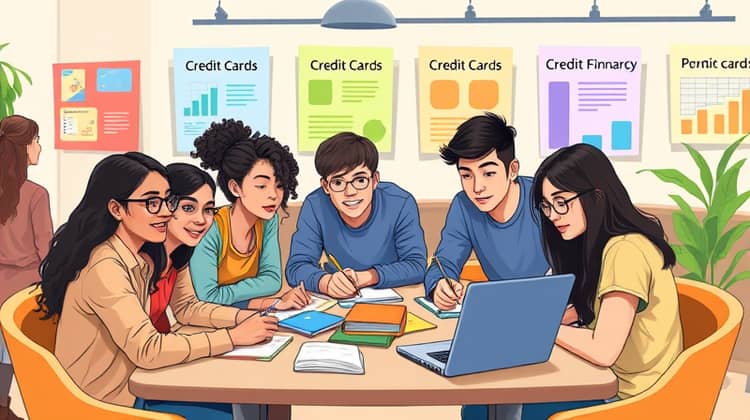
In the age of digital finance, it's important for teens to grasp the fundamentals of credit. With easy access to credit through various avenues, including online applications and in-store promotions, teens may find themselves in situations where they need to manage credit wisely.
Teaching them about credit cards can help instill a sense of responsibility regarding borrowing and spending. It's not only about using a card to make purchases; it's also about understanding the long-term implications of their financial choices.
Whether they attend college, get a job, or make their own financial decisions, being well-versed in credit can allow teens to navigate the financial world more effectively.
- To avoid accumulating debt from poor spending habits
- To understand the implications of credit scores and reports
- To make informed decisions about borrowing money
When to Start the Conversation
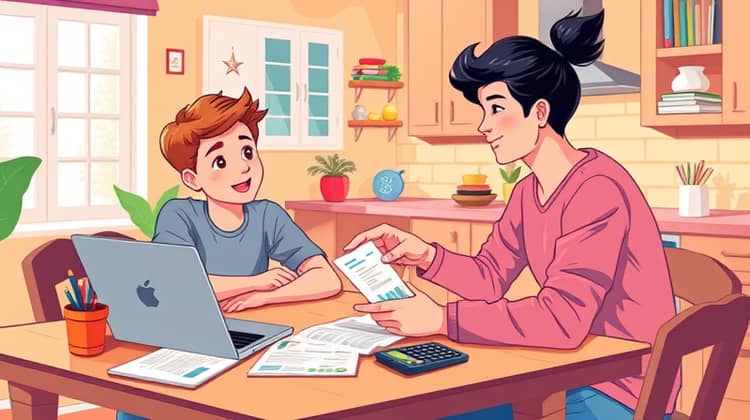
Starting the conversation about credit cards with teens can happen naturally as they approach milestones in their lives, such as getting their first job or preparing for college. These moments often result in newfound financial independence, but they also come with responsibilities, including managing money and understanding credit.
Ideally, discussions about credit should begin before teens are issued their first credit cards. Initiating these conversations early allows for ample time to explore the topic and answer any questions or concerns they may have. This can prevent misconceptions and prepare them for future financial decisions.
Encourage an ongoing dialogue about credit and finances rather than making it a one-time conversation. Regular discussions about smart spending, saving, and credit will help reinforce these lessons and encourage teens to think critically about their personal finances.
How to Start the Conversation

Opening the dialogue can feel daunting, but it does not have to be. Select a casual setting where both you and your teen can talk openly and comfortably. Bringing up a related financial topic, such as budgeting for a new gadget or discussing recent purchases, can create a natural segue into discussing credit cards.
- Ask them what they know about credit cards
- Share personal experiences regarding credit
- Discuss media representations of credit and debt
Key Concepts to Cover
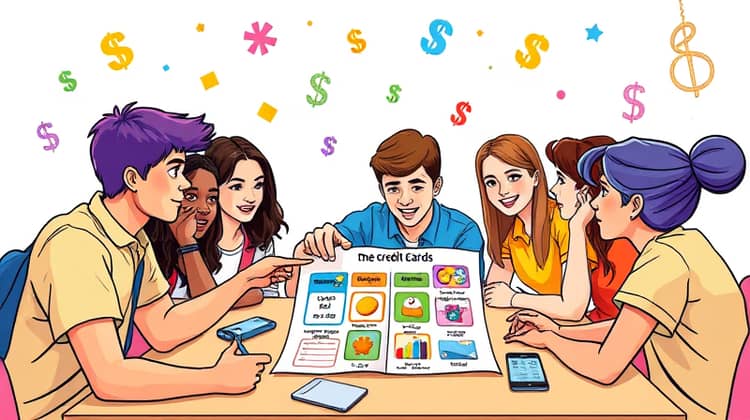
When discussing credit cards, emphasis on key concepts can help solidify a teen's understanding. It’s essential to break down complex ideas into digestible information, focusing on the fundamentals. Credit literacy is paramount for avoiding potential pitfalls associated with credit.
a. How Credit Cards Work
Explaining how credit cards function is crucial for teens to understand their usage. Credit cards are essentially a line of credit that allows users to borrow against a limit specified by the credit card issuer. This means that each time a purchase is made, it reduces the available credit until repaid.
This function enables users to buy items now and pay for them later, but it's important to stress that any unpaid balance can accrue interest, leading to payments that exceed the original purchase cost. Understanding this concept can help teens appreciate the financial responsibility that comes with credit use.
- Credit limit and its implications
- Monthly billing cycle and statements
- How to make payments and due dates
b. Interest Rates and Fees
Teens must understand the importance of interest rates and fees associated with credit cards. When credit is utilized, if the balance is not fully paid by the due date, interest is charged on the remaining balance, which can accumulate quickly over time. This is especially relevant for those just beginning to navigate credit cards and personal finance.
Discussing late payment fees, annual fees, and over-limit fees can help teens make informed decisions about the types of credit products they may choose to use in the future. Additionally, it’s essential to emphasize the difference between fixed and variable rates and how they can impact their payments.
- Annual fees and how they work
- Late fees and consequences
- Understanding Annual Percentage Rate (APR)
c. The Importance of Paying Off the Balance
Teaching teens the importance of paying off credit card balances is perhaps one of the most critical lessons. Emphasize that carrying a balance can lead to high-interest charges and create a cycle of debt that is difficult to escape. Reinforce the idea that credit should be used wisely - ideally, for purchases that can be repaid in full each month.
Encouraging them to develop a habit of paying off their balance promptly can help them maintain a good credit score and avoid unnecessary fees. A responsible approach to credit can foster long-term financial health and stability.
d. Building Credit
Understanding how credit cards can play a role in building credit is important, especially as teens prepare for future financial endeavors such as buying a car or applying for student loans. Teens need to know that responsible use of a credit card can contribute positively to their credit history.
Discussing the significance of on-time payments and keeping credit utilization low can help them understand how these factors affect their credit score. A good credit score can open doors and provide more favorable terms for loans in the future.
- The relationship between credit scores and borrowing
- How credit history influences loan applications
- Keeping utilization below 30%
e. Credit Limits and Spending Habits
Finally, discussing credit limits helps teens comprehend the responsibility that comes with credit. Explain how credit limits are determined and the importance of not exceeding these limits to avoid penalties and negative effects on credit scores. Understanding self-control and discipline in spending is key to preventing debt accumulation.
Establish discussions around responsible spending habits and budgeting as they begin to use credit cards. Teaching them to limit their spending to what they can repay in full each month will instill discipline and financial responsibility.
Practical Steps for Teens

There are practical steps that teens can take to manage their credit responsibly as they start using credit cards. These steps can help them navigate their finances with confidence and competence.
- Create a budget to manage expenses
- Use credit cards responsibly and within budget
- Review monthly statements for discrepancies and spending habits
Mistakes to Avoid
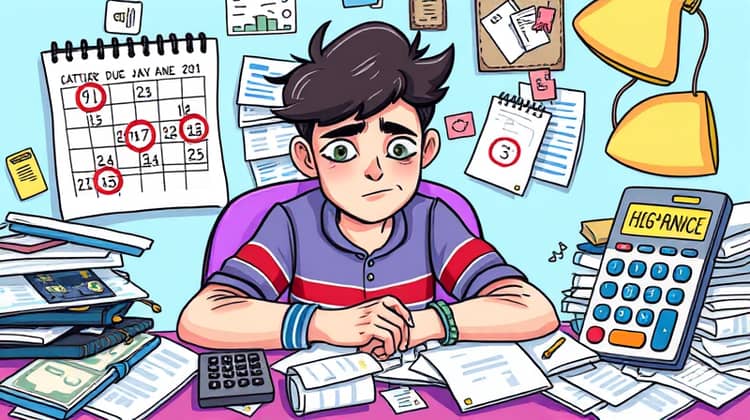
Common mistakes can derail a teen's financial journey if not addressed. It is essential to help them recognize these pitfalls early on.
- Ignoring due dates for payments
- Only making minimum payments on balances
- Accumulating high debt without understanding repayment plans
Resources and Tools
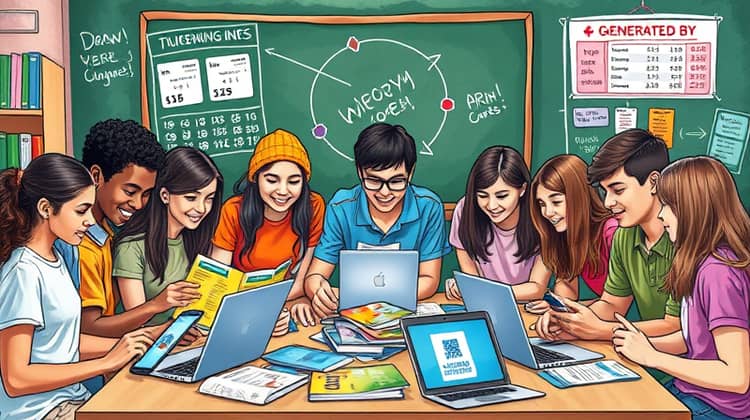
There are numerous resources available to assist teens in learning about credit cards and financial literacy. Utilizing these resources can provide them with additional guidance and knowledge as they navigate their finances.
Encourage teens to explore interactive tools, educational websites, and workshops aimed at improving financial skills. Taking advantage of budgeting apps can also promote financial awareness and responsibility.
- Financial literacy websites and courses
- Budgeting and personal finance apps
- Books on money management and credit
Conclusion
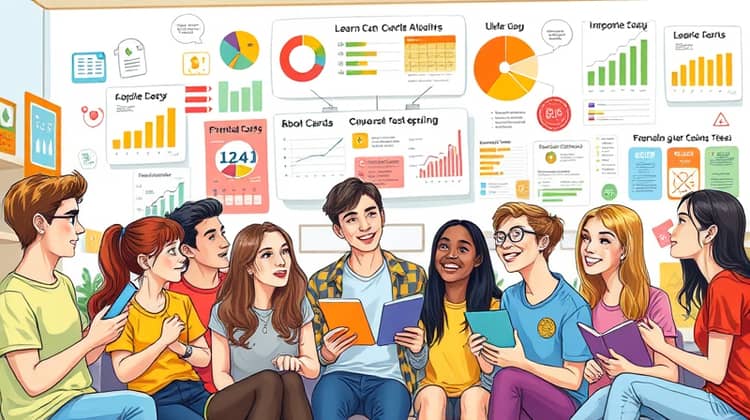
In conclusion, teaching teens about credit cards is an invaluable part of preparing them for financial independence. By fostering open communication and discussing key concepts, teens can develop healthy financial habits that will benefit them for years to come. Understanding credit is not just about avoiding debt; it’s about making informed choices that contribute to their overall financial well-being.

